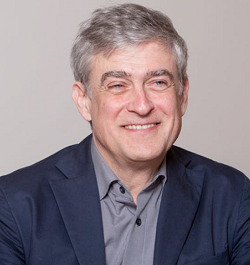ÖGMBT-Young Life Scientists Austria/FEBS Junior Section present Florian Rüker

This talk is an activity from the FEBS Junior Section, an initiative set up by students and young researchers from some of the FEBS Constituent Societies. Each month a Junior Section from one of the participant Societies organizes an online event on either a research or a career topic. This May talk is organised by ÖGMBT-Young Life Scientists Austria, the junior section of the ÖGMBT.
Speaker: Prof. Florian Rüker, University of Natural Resources and Life Sciences (BOKU), Vienna
Topic: “Circumventing immunization by in vitro directed evolution and selection of human antibodies from large surface display libraries”
Time: 12 May 2022, 19:00 (CET)
For more information, see the presentation abstract below and visit Prof. Florian Rüker's webpage.

Abstract
Monoclonal antibodies are currently the most important class of biological therapeutics. They are used for the treatment of a wide range of diseases, including cancer and autoimmune disorders. In the year 2018, 10 monoclonal antibodies were among the 15 largest selling drugs worldwide. Adalimumab (Humira) has been the top selling drug for many years now and is a prime example for an antibody that was generated entirely by in vitro methods, completely circumventing immunization. This seminar will focus on methods how this can be accomplished.
Bacteriophage, yeasts or mammalian cells, and even ribosomes allow the formation of so-called genetic packages, where a recombinant protein like e.g. an antibody or an antibody fragment is expressed on its surface, and the encoding genetic information is contained in the inside of the package. This direct link between genotype and phenotype allows the creation of large and diverse libraries of antibody fragments, in which all clones differ within the region that contacts antigen. Typical sizes of antibody fragment libraries are in the range of 109 to 1011 independent clones. Libraries can be enriched and selected for clones that bind to an antigen of interest, thus mimicking immune selection. Selected clones can be isolated and further engineered, resulting in human antibodies of high affinity and specificity, which can then be expressed and purified in large scale from cell cultures in vitro and used clinically for therapy in humans. Examples of such antibodies will be presented and compared to other methods of antibody generation.

The FEBS Junior Section
Want to join this platform for young European life scientists? Learn more about our initiative, check out the Room for the FEBS Junior Section and – if you do not have a junior section yet – read this post about how to set one up!
If you have registered to receive emails about FEBS Junior Section events and would like to unsubscribe, please use this form. If you have any problems with the form, contact [email protected]
Photo by Javier Miranda on Unsplash





Join the FEBS Network today
Joining the FEBS Network’s molecular life sciences community enables you to access special content on the site, present your profile, 'follow' contributors, 'comment' on and 'like' content, post your own content, and set up a tailored email digest for updates.